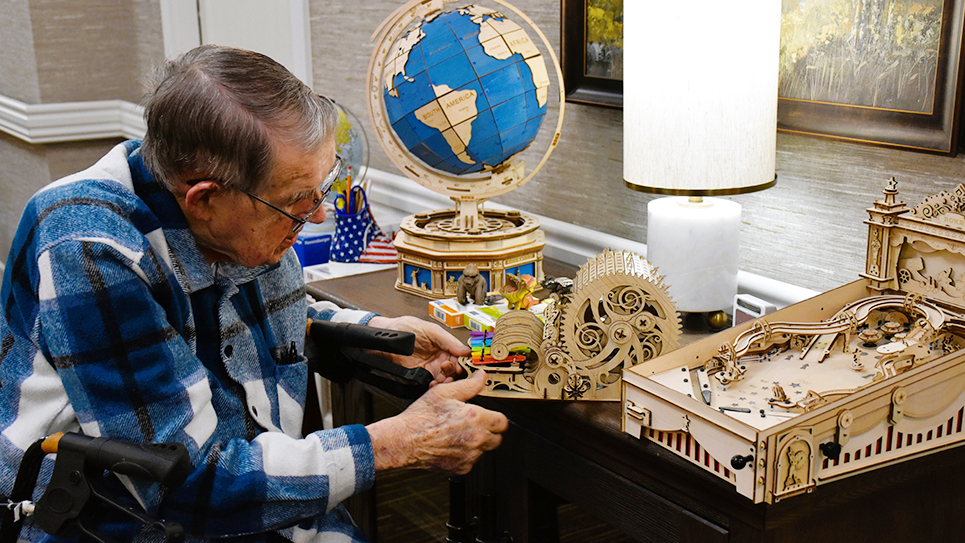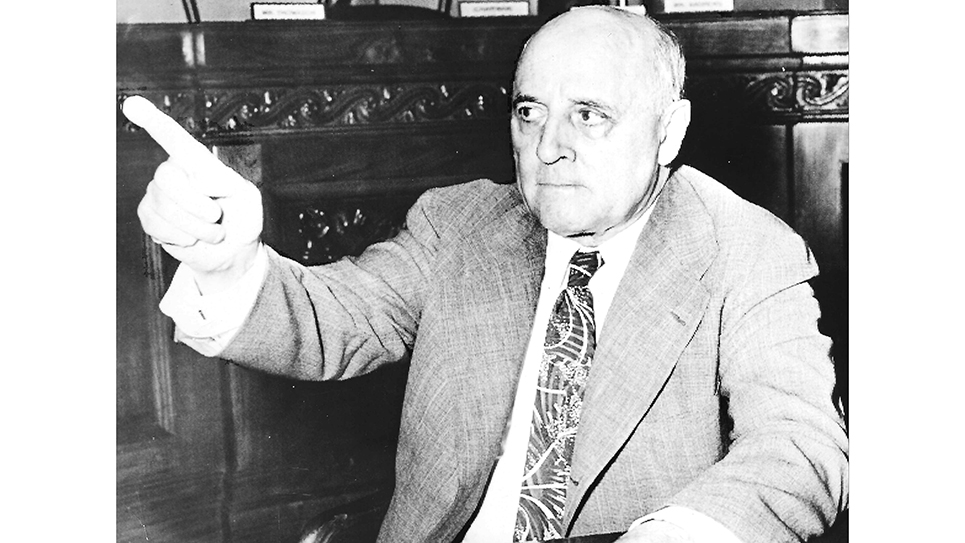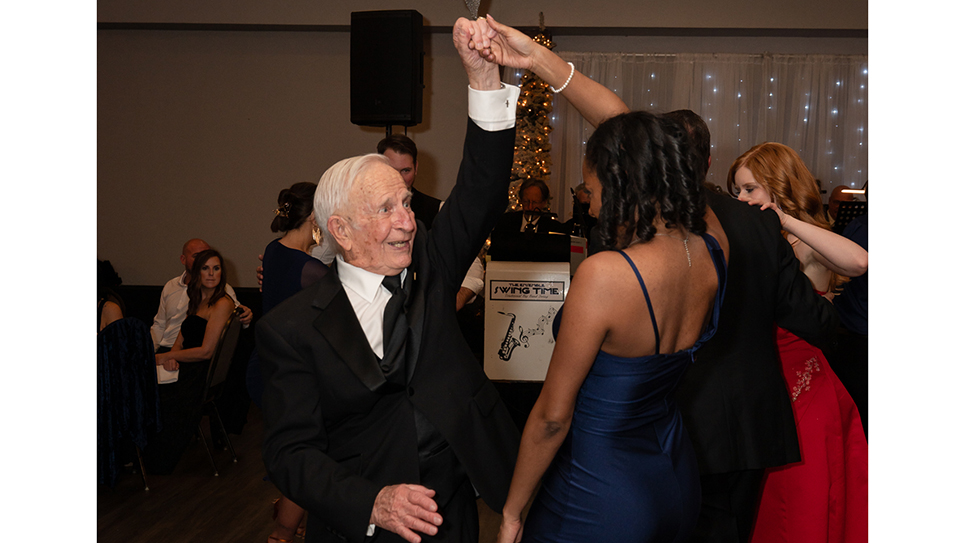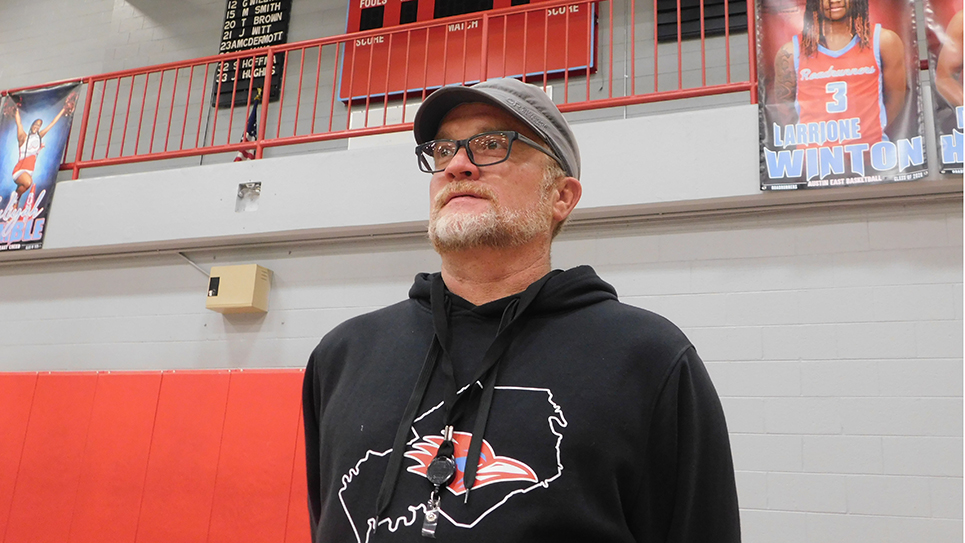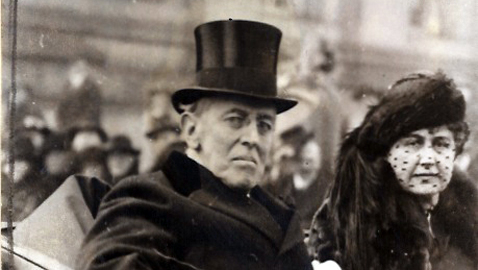
From the author’s personal collection.
An ill former President Woodrow Wilson and his wife, Edith, 1921
Woodrow Wilson returned to America to face a hostile Republican Congress and a people tired of the war. Wilson believed if he could reach the American people, he could convince them the United States’ participation in the League of Nations was essential. Wilson embarked on a tour of the country by train, speaking to thousands of people on behalf of his cherished dream. Wilson drew thousands to hear him speak, attended innumerable luncheons and dinners, shook countless hands, and made his case for the League of Nations.
As the tour progressed, it became more apparent the president was faltering.
The tour ended in Pueblo, Colorado when Woodrow Wilson suffered a debilitating stroke on board his train. The left side of his body was paralyzed and the stricken president was hurried back to Washington, D. C.
For the rest of his term of office, few people knew the extent to which Woodrow Wilson was disabled. First Lady Edith Wilson and Dr. Cary Grayson conspired to keep the nature of the president’s illness and incapacitation hidden from the public. Mrs. Wilson’s sole concern was the life of her husband and she didn’t care about much else. Government business remained untouched and Cabinet officers were dismayed when letters and official business was left hanging. Documents, appointments to various offices, and diplomats waiting to be received by the president were left hanging.
The cause of one diplomat’s failure to be received by the present went beyond the fact Wilson was ill. Lord Edward Grey had made the mistake of bringing back a minor attaché who was a convivial and witty young gentleman who had earned the wrath of the formidable Mrs. Wilson. Major Charles Stuart-Crauford’s wit was hardly appreciated by the First Lady when his comment that Edith Wilson had been so surprised when the president had proposed to her, she quite nearly fell out of bed. Major Stuart-Crauford was hurried back to England, but returned when Lord Grey came to America as Great Britain’s ambassador. News soon reached the White House that Stuart-Crauford had accompanied Lord Grey on his mission and he would leave the United States without having seen President Wilson.
Rumors swirled about the condition of the president and two members of the United States Senate visited the White House; Senator Gilbert Hitchcock of Nebraska was the Democratic leader of the Senate and a faithful ally of the president. The other senator accompanying Hitchcock was anything but a friend of the president. Albert Fall of New Mexico was a Republican and a grizzled veteran of that state’s all too often brutal politics.
President Wilson received the visiting senators in his bedroom, his useless left arm carefully concealed beneath a blanket. Wilson was having a good day and when Senator Fall solicitously told the president he was praying for him, Wilson retorted, “Which way, senator?”
Both senators returned to the Capitol to tell their colleagues the president’s mind was as good as ever, but it was a deception. Wilson was unable to concentrate for any length of time and his once formidable signature was a shadow of itself, reduced to a scrawl.
Despite bulletins issued from the White House that the president was making a steady recovery, Irwin “Ike” Hoover, long-time Chief Usher, recorded that for the first month of his illness, Wilson was both mentally and physically incapacitated.
The fight over American entry into the League of Nations raged in the United States Senate and Henry Cabot Lodge of Massachusetts proposed a set of “reservations”, which a stubborn Woodrow Wilson absolutely rejected. Wilson simply refused to compromise in any form or fashion. American entry to the League of Nations would be on his terms or not at all, an attitude which both dismayed and tormented many Democratic leaders. Despite pleas for Wilson to bend even a little, the president refused. Woodrow Wilson’s obstinacy doomed American entry to the League of Nations.
Edith Wilson became the gatekeeper to her husband; no one or nothing reached the ailing president without her express approval. Mrs. Wilson determined just precisely what would reach the president’s eyes. Official documents were soon being returned to Cabinet members and others with instructions in the president’s name. Most received no answer of any kind.
Political wives come in several different varieties and Edith Wilson, with a formal education of two years, rapidly replaced Colonel Edward M. House as the president’s closest confidant and political adviser. Even before they were married, President Wilson routinely forwarded official documents to Edith for her to read and she felt free to offer whatever criticism or comments she cared to make. Mrs. Wilson frequently decoded messages for her husband and worked right along beside the president in his office on more than a few occasions.
The murdered Russian Emperor, Nicholas II, had also had a wife who meddled constantly in political affairs and became enthralled with a self-made peasant priest, the infamous Grigory Rasputin. The heir to the Russian throne, Alexi Romanov, was a hemophiliac and the Empress Alexandra believed that Rasputin was sent by God to keep her son healthy. As a consequence, Rasputin wielded enormous power in the Russian government and the Tsar’s wife was as much responsible for the fall of the dynasty and the end of the Russian empire as anyone.
While Edith Wilson was no Alexandra, those who had earned the enmity of the First Lady soon found themselves without access to the president. Colonel Edward Mandell House had been perhaps the single most influential adviser to the president. Colonel House, whom Wilson had once called his “other self”, was disliked by Mrs. Wilson and his attempts to communicate with the stricken president received nothing save for a glacial silence. Secretary of State Robert Lansing was summarily dismissed after he called a meeting of the Cabinet in the hope of resolving some of the pressing governmental matters that were pending without President Wilson’s express permission. Those vacancies in offices that could not be put off or merely ignored were oftentimes hastily filled and not by appointees who reflected credit upon the administration.
Despite his illness and incapacitation, Woodrow Wilson had yet another dream; he wanted a third term as president. The president’s intimates were absolutely horrified when they discerned Wilson was actively encouraging friends to place him in nomination yet again. The president either didn’t care or seemed not to realize there was no possibility of his waging another reelection campaign. Most of those who truly cared about Wilson knew all too well any effort on his part to campaign would likely kill him. Assistant Secretary of State Breckinridge Long, who attended the 1920 Democratic National Convention, had intended to place Woodrow Wilson’s name in nomination. Virginia senator and former Secretary of the Treasury Carter Glass finally dissuaded Long from presenting the president’s name to the convention.
The president was not especially pleased when another former Secretary of the Treasury and his son-in-law, William Gibbs McAdoo, was a candidate for the nomination and presented as the natural heir to Woodrow Wilson.
Wilson was bitterly disappointed in 1920 when his party nominated Ohio Governor James Cox for the presidency. When Cox and his running mate, Franklin D. Roosevelt, visited the White House, they found a broken man in a wheelchair. Cox, deeply touched by the president’s pitiful condition, tearfully pledged to make the League of Nations the big issue of his own campaign. Wilson could only reply in a husky whisper that he was “very grateful.”
Cox was badly beaten by his fellow Ohioan, Senator Warren G. Harding, who promised Americans a “return to normalcy”. Republicans carried both houses of Congress and Woodrow Wilson went into retirement. Wilson is the only former president to remain in the nation’s Capitol. Having been born in Virginia and been the governor of New Jersey, Wilson was not likely especially attached to any particular location. Edith Wilson had lived in Washington for decades and evidently did not intend to live elsewhere.
Wilson’s successor was shocked by the president having to be physically lifted into the automobile they shared on the way to Harding’s inauguration. Nervous, Harding chatted with Wilson and discussed his fondness for elephants, perhaps not surprising in a Republican politician. Harding told the tale of an elephant that was dying and wailing mournfully for his trainer. Once the trainer appeared, the elephant gently wrapped his trunk about his friend, drew him close into an embrace, sighed and died. Harding, looking at the president, was surprised to see tears streaming down Wilson’s partially paralyzed face. A very kindly man , Harding joked that he had always wanted to have an elephant as a pet himself and Wilson composed himself enough to say he hoped it wouldn’t be a “white elephant.”
Mrs. Wilson had been house hunting and found several possibilities, settling on a magnificent house on S Street. Wilson purchased the house and surprised the First Lady with the deed. Several wealthy friends of Wilson donated money to help make the purchase possible. In those days, former presidents had no pension and many of those same wealthy friends collected enough cash to guarantee an annual income for Woodrow Wilson.
President and Mrs. Wilson moved into the house and began a routine that rarely ever varied until the end of Woodrow Wilson’s life. Wilson never gave up his dream of American participation in the League of Nations, nor did he entirely surrender the idea of returning to power. Wilson sketched out plans for another administration and a return to the presidency in 1924.
Woodrow Wilson’s illness left him largely unable to work or concentrate; he did make one brief radio address, which was well received, although he started out very slowly and had to be prompted by Mrs. Wilson.
The former president did make a few public appearances and rode in a procession following the death of President Warren G. Harding. Wearing a silk top hat, Wilson tried hard to smile and tip his hat to those who recognized him along the way.
Mrs. Wilson, who had been extraordinarily devoted to her husband, was utterly exhausted by caring for her ill husband. Reluctantly, she finally took a trip to visit friends and upon her return, she saw just how ill her husband really was. His health and spirit broken, Woodrow Wilson continued his slow decline and finally slipped away on February 3, 1924.
Edith Wilson, who controlled access to her ailing husband during the last year of his presidency, lived for many more years in the huge house that had become almost a museum to the late president’s memory. Mrs. Wilson would remain a fixture in Washington society and she was always available to commemorate her husband’s memory and legacy. Edith Wilson was in fact due to attend the official ceremony for the naming of the Woodrow Wilson Bridge when she died at age eighty-nine on December 28, 1961.
Aside from being a fixture in Washington, D. C. society following the death of her husband, Edith Wilson became the guardian of her husband’s memory. Mrs. Wilson kept a firm hand on both the late president’s memory and possessions. Edith Wilson wrote her own memoirs and for a very long time, set the tone for the history of Woodrow Wilson’s last years in office. In effect, Edith Wilson re-wrote history and for many years, her version of events was accepted by more than a few historians. When 20th Century Fox film studio produced a lavish biopic of Wilson in 1944, Edith Wilson was consulted and the producer carefully adhered to the former First Lady’s wishes.
Edith Wilson also kept a tight lock on Woodrow Wilson’s papers, refusing permission to quote from the late president’s papers in many instances. It was many years before historians and the public alike realized the true extent of Woodrow Wilson’s last illness or the role Edith Wilson herself played during her husband’s administration. When the sons of Dr. Cary Grayson donated additional papers belonging to their father, it became all too clear just what an invalid President Wilson had become after his stroke. There had been some discussion of Wilson resigning from the presidency and allowing Vice President Thomas Marshall to serve out the remainder of his term, a solution Mrs. Wilson utterly rejected. It was a situation without precedent and no American president has faced the like before or since. In a society where every scrap of news is instantly available to millions across the globe, it is almost unthinkable to imagine a president remaining in the White House incapacitated.
Edith Wilson was interred with her late husband. Both President and Mrs. Wilson sleep in the Washington National Cathedral to this day.



